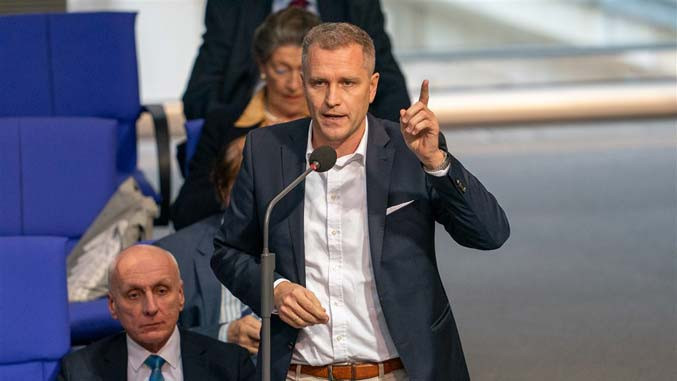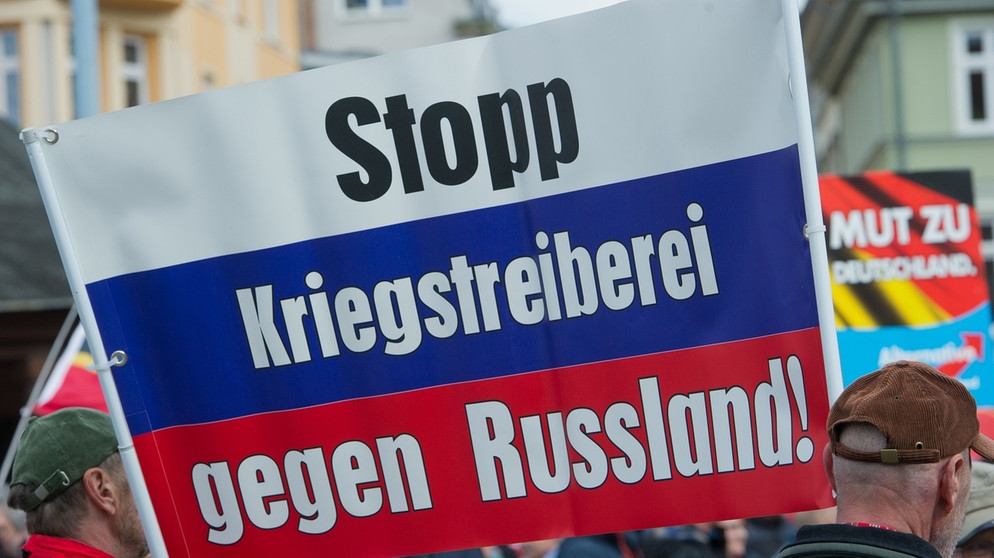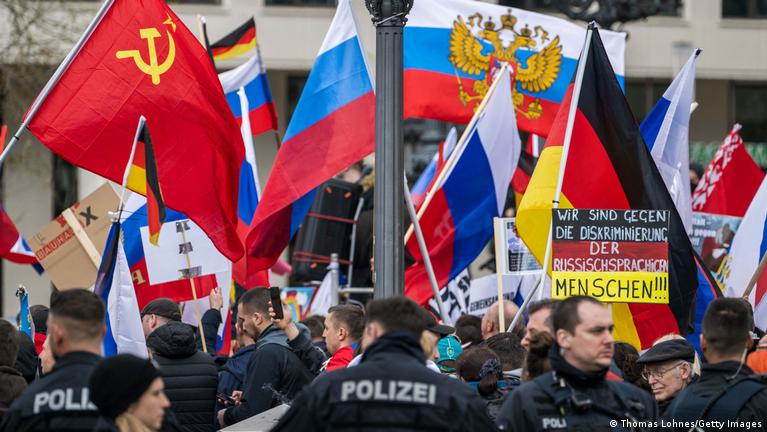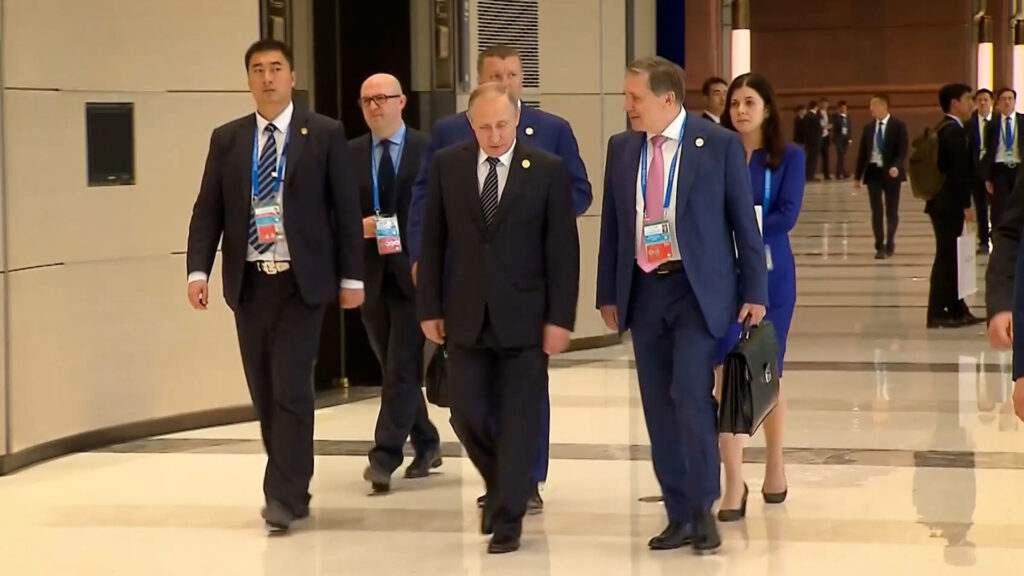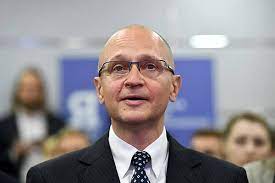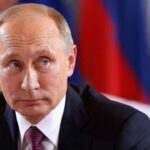Russian intelligence is undertaking active efforts to interfere in the German political life, dismantle the current government, and bring to power politicians loyal to Moscow. The Kremlin continues to engage with a loyal far-right Alternative for Germany (AfD) party. Quite notable in this regard is the statement by party co-chair Alisa Weidel of their plans to nominate a candidate for Federal Chancellor’s post in the upcoming elections.
The party may take a corresponding decision at the Federal Congress.
The AfD is now the most vividly pro-Russian party in Germany.
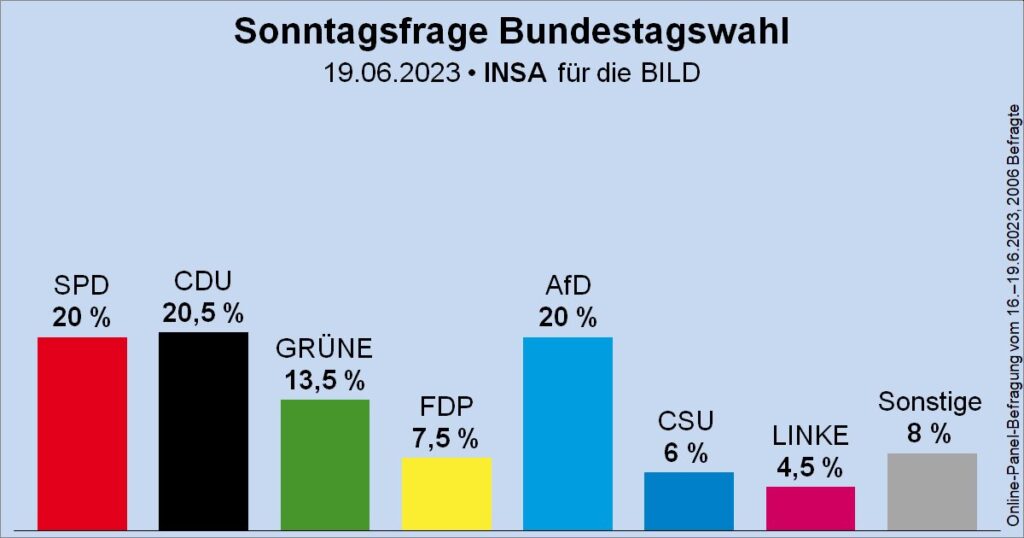
According to polls, the AfD currently garners 18-20% of the vote across the country and remains on track to win three elections in eastern Germany. Their party program is generally about calls to stop migration and a green agenda. AfD members have repeatedly been spotted promoting hate speech and agitation against all kinds of minorities in Germany, especially migrants. They were also involved in Moscow’s meddling operations.
Reasonably suspected of being funded by Moscow, the AfD is working to split the EU and NATO by opposing economic sanctions targeting Russia.
In order to improve the AfD’s popular rating, Russia may provoke a number of local crises related to Germany’s migration policy or those related to the energy sector.

Such predictions are supported by a report by Germany’s domestic intelligence agency, which claims that far-right extremism poses the greatest threat to German democracy and that “voters should keep this in mind” before voting for the nationalist and anti-migration Alternative for Germany.
The German Institute for Human Rights (DIMR) analyzed the activities of the pro-Russian Alternative for Germany (AfD) party, concluding that the force promotes the ideas of racism and right-wing extremism, challenging the guarantees enshrined in Article 1 of the German Constitution – inviolability of human dignity.
However, according to our estimates, the greatest threat to the AfD is its involvement in Russian intelligence operations of influence.
One of the party members, Markus Frohnmaier, is married to a Russian journalist and has been to Crimea and eastern Ukraine multiple times. In 2019, the BBC published documents suggesting that Frohnmaier is a Russian asset. Another AfD member, Gunnar Lindemann, also traveled to the occupied territories and even attended an “anti-fascist” congress in Crimea, where he received an honor. As recently as September 2021, Lindemann and three other MPs went to Russia to act as “observers” during the Duma election. In fact, they were not sent by any international organization.
Moscow has long cultivated dozens of AfD members, especially through lavish, all-expenses-paid trips to Russia, documents and interviews show.
The party’s interaction with Moscow has already been observed as a government coalition was shaping up in Germany.
According to the Washington Post, at least two key figures — one in the AfD and another close to Wagenknecht — said they were in contact with Kremlin officials or Kremlin allies at the time Moscow’s proposals for a coalition were being drawn up. In addition, three AfD lawmakers traveled to Russia on Sept. 20 but broke off the trip after less than a day following a public outcry — and censure from the AfD party leadership — over their plans to visit Donbas, the region in eastern Ukraine that is illegally occupied by Russia.
One of the individuals in contact with Russian officials was Ralph Niemeyer, Wagenknecht’s ex-husband. He was still in near-daily communication with Wagenknecht. During meetings with top-level Kremlin officials in Moscow he saw that “there are certain people in Russia who have [an] interest” in a union between Wagenknecht and the far right.
According to our estimates, the German sector’s handler in the Kremlin is Sergei Kiriyenko.
A charismatic MP Petr Bystron (AfD) made a secret 3-day trip to Belarus in November 2022, which he acknowledged only after being exposed by Lithuanian and German media. Kalbitz also frequently visited Moscow “for consultations.” Such visits were sponsored by the Russian Peace Foundation, owned by the chief of the Russian Parliament’s Foreign Relations Committee, Leonid Slutsky, who has repeatedly come under the radar as part of Russia’s military intelligence stunts.
Despite the lack of evidence of Russia directly funding the party, the money comes through “service payments,” all thoroughly documented by the Russians. Officials are concerned that another case surfacing similar to that of France’s Marine Le Pen, whose public image has been seriously affected after she secured a loan from a Russian bank. However, this hypothesis is supported by Russia’s attaché in Berlin describing Markus Frohnmaier as “a fully controlled” lawmaker in the Bundestag, which suggests Russia has dug up some serious “kompromat” on the MP.
Also, we should not rule out the possibility that the recently exposed Reichsbürger conspiracy could be linked to Russian intelligence plot of some sort of a radical operation in Germany. Among those arrested in the Reichsbürger case are politicians with the AfD party (Birgit Malsack-Winkemann), which points to the intertwining of their party’s ideology and actual readiness of its backers for certain “revolutionary” changes. Henry XIII’s contacts with the Russian consulate in Leipzig indirectly confirm the assumption that the conspirators were in touch with Russia. Meanwhile, Russia’s denial of any ties to the criminal ring is obviously related to the operation’s ultimate failure.
The fact that the operation was compromised switched Moscow’s focus onto the AfD, which is expected to rally all citizens dissatisfied with the German government.
The Russian trace in the “Reichsbürger Movement” may be related to the general concept of encouraging a policy of revisiting the imperial frontiers that Moscow also pursues in Hungary and Serbia. The Kremlin seeks to achieve a political split in Germany and bring to power a chancellor who would reestablish active contacts with Russian businesses and reinstate Germany’s dependence on Russia in a number of industries (primarily energy), as it was the case during Angela Merkel’s rule.
Thus, in the short term, Russia may attempt to run operations aimed to highlight the migration problem in Germany and energy-related threats. The latest crumbling of Russia’s HUMINT network and the weakening of the Kremlin’s intelligence potential in Europe will force the Russians to create conditions for facilitating the work of their remaining assets abroad. This could involve dramatic sabotage operations or assassinations, which will be used by pro-Russian politicians to tarnish the German government. For this purpose, the Russian diaspora will be employed as actors in Moscow’s “active measures” on German soil.


